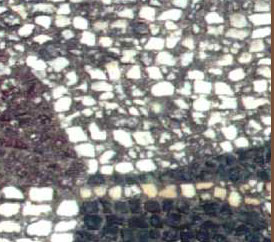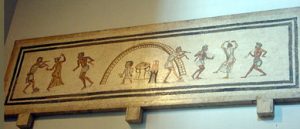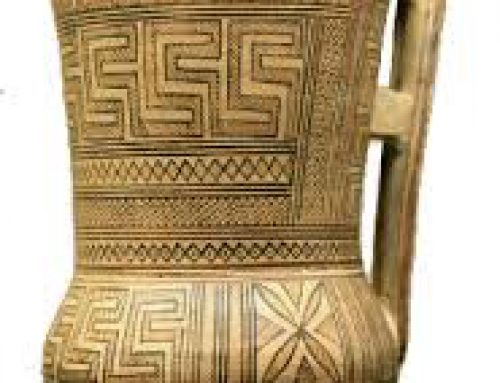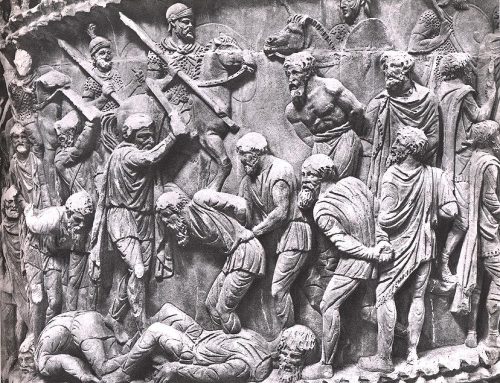
A mosaic floor made up of tiny blocks
You make the simplest kind of mosaic by taking a lot of black and white pebbles and arranging them on a bed of wet cement on the floor so that they make some sort of pattern, like a checkerboard or a line of black around the outside of the room.

A mosaic floor from the Roman baths of Caracalla
When the cement dries, you have a nice hard floor in your house which is also attractive. The Greeks did a lot of this kind of mosaic in fancier houses.

A Roman mosaic of people dancing from the Vatican Museum in Rome, Italy
If you want to get fancy, you can get stones in a lot of different colors, including colored glass so you can get just the colors you want. And you can make the stones very small, so you can make more detailed pictures. Many Roman houses for rich people, especially from the later part of the Roman Empire, around 300 AD, have these fancier mosaics. These fancy mosaics may have been a cheaper, or more lasting, way to imitate the Persian carpets that rich Sassanians and Sogdians were putting on their floors about the same time.

From St. Marks in Venice, a wall mosaic of Noah releasing a dove (1000s AD)
Around the time that people were beginning to build big Christian churches, in the 300s AD, they also began to decorate the walls of these churches with mosaics. These wall mosaics generally have gold backgrounds (not really gold, but gold-colored glass). In the Roman Empire, in what’s now Greece and Turkey, people kept on making these church mosaics right up to the 1400s, and people in Europe also decorated churches with mosaics until about 1300 AD.
Learn by doing: A mosaic project
More about Persian carpets
Bibliography and further reading:
Mosaics (Step-By-Step Children’s Crafts Series), by Michelle Powell (2001). How to make your own mosaics using easily available materials, for kids.
Ancient Mosaics, by Roger Ling (1998). A look not only at the mosaics themselves, but also why people made them, who made them, and how.




